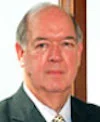Unlike the last couple of Super Bowls, players in the 2014 game between the Seattle Seahawks and Denver Broncos were politically correct, at least when facing the media. No public slurs about sexual preferences or statements offensive to people with cognitive disabilities.
Nevertheless there were Lessons Learned from Super Bowl Week in last year’s hybrid New York/New Jersey site. So with the 2015 game between Seattle and New England only days away, on Feb. 1, here are a few lessons that might have been forgotten.
- Sports and political pundits have a lot in common. They’re often wrong when making predictions.
- If the adage, “the best defense is a good offense” is no longer taken seriously, you can blame Denver, which entered the game with the NFL’s best offense.
- TV commercial makers seem more interested in showing off their creativity in making a “film,” as they call it, than in producing a :30 with “sell.” (Maybe that’s why so few commercials can be proven to actually increase sales.)
The lack of trash statements from players also seemed to transform many reporters. Instead of looking (hoping?) for controversial stories, many even dismissed the unwarranted negative coverage that Seattle’s Richard Sherman received after the NFL championship game. Like sob sisters of yesterday, Big Game reporters said that he was unfairly maligned. Day after day during Super Bowl Week, “Sherman the Good” replaced their previously media-hyped “Sherman the Bad” coverage.
There were also negative take-a-ways that advertisers, brands managers and politicians should consider:
1) Following the yearly boiler plate scripts of Super Bowl marketers, which reads that results from their TV commercials “were more than we could have hoped for,” even though research to see if there was a bump in sales might not have even yet started, Gov. Cuomo quickly announced that Super Bowl Week was a financial bonanza for New York. But just a day later, the Broadway (producers) League said that grosses for Broadway shows declined by $2.4 million during the week, even though many shows changed their schedules to accommodate the thousands of out-of-towners who came to New York for the game. Producers also offered visitors a special two-for-one ticket promotion, which failed as badly as the Denver Broncos, proving that the only big hits that football fans wanted to see was on the gridiron.
2) If you are paying about $4.5 million for your Super Bowl 30-second commercial at least demand that it be seen early in the game. The New YorkTimes reported, on Feb. 4, that there were 12 million less viewers in the latter stages of the game. And in a January 7 article said that because of the increasing number of commercials consumers are likely to remember only a handful of commercials, according to ad executives.
3) Better still insist that the commercials run immediately before the half-time show. The show, which featured the Red Hot Chili Peppers and Bruno Mars, was watched by more people than the game itself. (Better still; consider a more targeted approach when planning your next marketing campaign.)
4) Better still: Marketers should consider other alternatives. Despite being the exclusive and perennial beer sponsor, Anheuser-Busch has seen its share of the brew market decline.
The NFL received negative coverage for refusing to show up at a New Jersey legislature hearing regarding the long delays that fans faced when leaving the stadium. (Maybe the football brass thought the hearing was about their lack luster response regarding its player’s concussions and family abuse.)
Super Bowl Week also produced lessons that youngsters should remember:
- Right in the midst of the NFL’s attempt to make Super Bowl Week “the best of all possible worlds” (as Dr. Pangeles in Voltaire’s Candide would say), NBC-TV aired an exclusive Tony Dungy interview with Jonathan Martin regarding the situation in which Martin left the Miami Dolphins because of bullying.
- If you’re a loyal employee and don’t mind taking in-coming media flack about concussions, family abuse and the Washington Redskins’ name controversy to prevent it from hitting your bosses, you too might someday become commissioner of the NFL.
- Never says never. Tim Tebow finally made a Super Bowl appearance. True, it was in commercials, but nevertheless he was in the game.
- A good defense will upset the plans of a good offence.
- No matter how good a quarterback is, and Peyton Manning is a great one, unless the QB will lead his team to a Super Bowl win he’ll be trashed as not being that good because he couldn’t win one game.
Of course what would Super Bowl Week be without reporters having to write stories devoid of anything new.
Hundreds, maybe thousands of stories were filed about Manning’s standing as an all-time great if (1) Denver won the game and (2) if they lost, followed closely by articles about his “Omaha” signal call.
- Reporters interviewed other reporters dressed in costumes.
- Seattle’s running back Marshawn Lynch generated more articles by not speaking to the media than if he had.
- Broadway Joe, wearing a fur coat in 49 degree weather at kickoff time, was too late to contend for “no news” wall-to-wall coverage.
There was one story about Manning that deserved more coverage than it received: After the game, he answered all media questions without making any excuses, went into the Seattle locker room to inquire about the injured Sherman and signed autographs on his way to the Denver bus. Regardless of the game’s outcome, that was a winning performance.
Of course, there were more Super Bowl losers than Denver. Millions of people who bet on the Broncos, the thousands of spectators who were told to not leave the stadium in order to alleviate a people jam and those who endured hours delays in getting home because of poor mass transit planning.
And let’s not forget about the poor groundhog. Its 30 seconds was hardly noticed because Groundhog Day happened to be Super Bowl Day.
There's one special lesson that the NFL should have learned. Renee Fleming with her best ever Star Spangled Banner and Queen Latifah’s America the Beautiful proved that you can create an aura of respect for America without the NFL’s usual tacky display of patriotism by using our soldiers as props.
The NFL lucked out because days of snow fell in the New York/New Jersey area only hours after the conclusion of the game and continued for weeks. But the most important Lesson Learned from last year’s game was that the NFL should not bring it back to New York. In other cities, it’s the Super Bowl 24/7. But New Yorkers are used to big events; it’s part of the city’s DNA. And all the Super Bowl hype in the world couldn’t overcome the normal day-to-day activates of the city that’s always awake.
Arthur Solomon, former senior VP at Burson-Marsteller, contributes to PR/sports business publications, consults on PR projects and serves on Seoul Peace Prize nominating committee. He can be reached at [email protected].
.


 Even the most iconic sporting or ceremonial event can be deep-sixed by an overzealous member of the crowd, so crisis comms pros need to be prepared.
Even the most iconic sporting or ceremonial event can be deep-sixed by an overzealous member of the crowd, so crisis comms pros need to be prepared. The Super Bowl, with its massive audience and sky-high ad cost, creates intense pressure to deliver. But when they hit the mark, these ads can become cultural touchstones.
The Super Bowl, with its massive audience and sky-high ad cost, creates intense pressure to deliver. But when they hit the mark, these ads can become cultural touchstones. Teneo has hired Nick Greenslade, deputy sports editor at The Times and Sunday Times, as managing director for its strategy and communications unit in London.
Teneo has hired Nick Greenslade, deputy sports editor at The Times and Sunday Times, as managing director for its strategy and communications unit in London. Jon Schwartz, a former SVP, communications, marketing, digital & social for the Big Ten Conference, is signing up with Prosek Partners to launch a new sports business unit.
Jon Schwartz, a former SVP, communications, marketing, digital & social for the Big Ten Conference, is signing up with Prosek Partners to launch a new sports business unit. USA Fencing has retained Finn Partners ahead of the 2024 Paris Summer Olympics and Paralympics Games.
USA Fencing has retained Finn Partners ahead of the 2024 Paris Summer Olympics and Paralympics Games.


 Have a comment? Send it to
Have a comment? Send it to 
No comments have been submitted for this story yet.